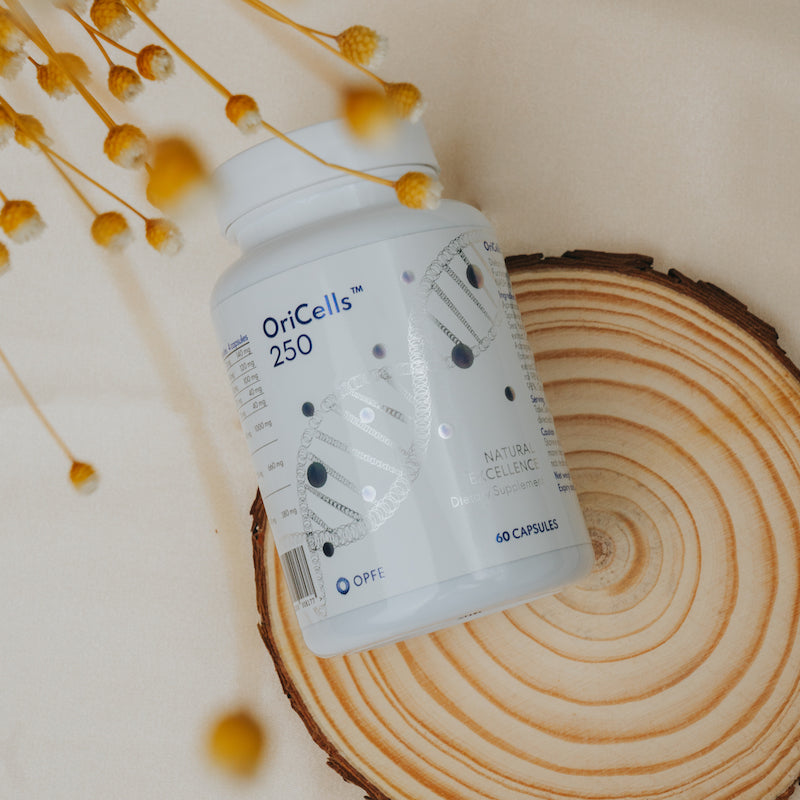What is Lion’s Mane Mushroom?
Lion’s mane is a mushroom with a history of both medicinal and culinary uses in Asia and Europe. Medicinal mushroom use dates back to 450 BCE when Greek physician Hippocrates discovered the potential anti-inflammatory properties of fungi as well as its role in wound cauterization, according to a 2017 study in the Journal of Restorative Medicine [1].
Lion’s mane grows on old or dead broadleaf tree trunks. Broadleaf trees shed their leaves seasonally and spread their seeds using a vessel, such as fruit. Lion’s mane is composed of two parts: the visible fruiting body (the mushroom) and the mycelium, which is the bottom structure that resembles roots. Both the fruiting body and the root-like mycelium contain compounds that offer potential health benefits.
Lion’s Mane Health Benefits
The potential benefits of lion’s mane mushroom are numerous and span physical, cognitive and mental health [2]. The mushroom is a source of natural bioactive compounds, which are health-promoting chemicals found in certain foods and plants. As a result, it exhibits disease-fighting properties, including anti-cancer, anti-microbial and antioxidant activity.
Research also suggests that lion’s mane may protect nerves from disease or decline, according to a 2015 abstract in the Journal of Agricultural and Food Chemistry. The same study concludes the mushroom displays additional health-promoting benefits, such as:
- Regulates blood sugar
- Reduces high blood pressure
- Promotes healthy energy levels and combats fatigue
- Helps to prevent excess blood lipid accumulation
- Protects heart health
- Slows biological aging
- Protects liver health
- Protects kidney health
Potential Alternative Treatment for Depression
Lion’s mane mushroom may be a potential alternative treatment for depression, according to a 2020 abstract in the Journal of Molecular Science. The abstract highlights three ways in which lion’s mane may ease depression symptoms:
- Helping ensure the presence of sufficient neurotransmitters
- Reducing the loss of nerve growth brought about by stressful situations
- Minimizing inflammation linked to depression.[3]
Furthermore, research shows that people living with major depressive disorder may have lower nerve growth factor than non-depressed people, according to a 2015 meta-analysis in Neuropsychiatric Disease and Treatment[4]. Nerve growth factor helps nerve cells specialize, grow and remain healthy, which are important aspects of mood regulation.
A number of studies demonstrate that lion’s mane increases nerve growth factor, according to Lexi Watson, a doctor of pharmacology, functional medicine practitioner and founder of Oakley Wellness, a practice that specializes in brain health and optimal aging.
May Benefit Brain Health
Lion’s mane’s effect on nerve growth factor levels may enable it to help protect against disorders like Alzheimer’s disease that feature cognitive impairment.
Lion’s mane is a type of nootropic, meaning it contains compounds that improve brain health and function, according to Best.
“Some research has shown a benefit on certain measures of memory and cognitive function,” says Tod Cooperman, M.D., a dietary supplement researcher and president and founder of ConsumerLab.com, a health and nutrition product testing company. “But results have been inconsistent, and most improvements have been modest at best,” he adds.
For example, lion’s mane may be effective at improving symptoms of mild cognitive impairment, according to a placebo-controlled trial in Phytotherapy Research. In the trial, adults ages 50 to 80 took four 250-milligram powdered lion’s mane tablets three times daily for 16 weeks. Cognitive function scale testing showed that participants taking lion’s mane scored higher than the placebo group, and their cognitive ability improved with the duration of supplementation. Four weeks after discontinuing lion’s mane, their cognitive test scores decreased[5].
Promotes Brain Injury Recovery
A 2021 study in Antioxidants offers some promising research of lion’s mane for people who’ve experienced traumatic brain injury (TBI). The study found that both lion’s mane mushroom and coriolus versicolor (another type of mushroom also known as turkey tail) exhibit neuroprotective effects against the inflammation and oxidative stress often associated with TBI[6].
The neurodegeneration, or progressive breakdown of nerve cells, caused by TBI can lead to further conditions like Parkinson’s disease. Treatment with lion’s mane may reduce the impact of brain trauma and TBI complications like Parkinson’s disease.
Reduces Anxiety and Stress
Lion’s mane may help ease stress, according to Best, and a 2010 study in Biomedical Research provides some evidence to support this theory. The study examines the effects of lion’s mane on brain function and concludes that participants who ate cookies containing 0.5 grams of powdered lion’s mane (specifically the mushroom or fruiting body) for four weeks reported less anxiety than those who ate placebo cookies. The study authors theorize that the nerve growth effect of lion’s mane mushroom contributes to its anti-anxiety action.
Supports Gastrointestinal Health
Lion’s mane mushroom exhibits ulcer-inhibiting action, which research suggests may stem from its effect on the helicobacter pylori (H. pylori) bacteria. H. pylori can cause stomach issues including ulcers, according to a study in the Journal of Ethnopharmacology[7].
Source: https://www.forbes.com/health/body/health-benefits-of-lions-mane/






